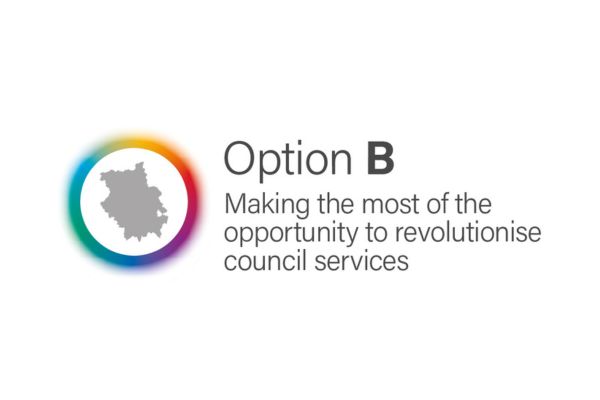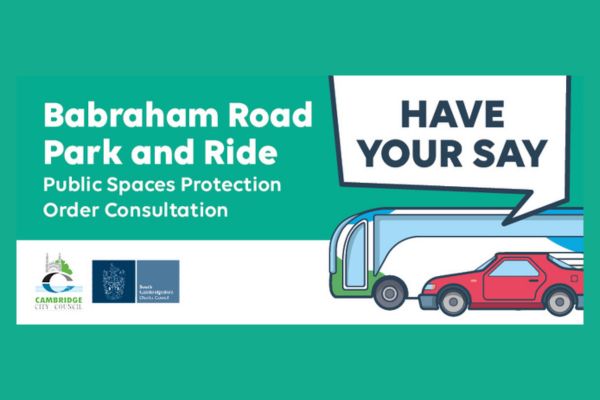A series of initiatives to help improve the environment in Cambridge and protect resident health and wellbeing have been approved.
A new strategy to improve air quality in Greater Cambridge
At Cambridge City Council’s Environment and Community Scrutiny Committee meeting on Thursday 21 March, councillors approved the adoption of the Greater Cambridge Air Quality Strategy. The strategy sets out the vision for continued improvements to air quality, that can be achieved by working closely with partner organisations. The strategy highlighted that this will be delivered by:
- continuing to engage with national government and local partners to ensure that air quality is a key priority when setting out new policies
- supporting to reduce the emissions created by new developments during the construction phase whilst making sure the new homes meet sustainability standards and active travel measures are considered
- supporting and facilitating active travel measures so that they fulfil the needs of residents to increase the uptake of the offers available, making local journeys more sustainable
- Raising awareness about air quality and what can be done to improve it.
The strategy has been developed alongside South Cambridgeshire District Council (SCDC) to maximise its impact. It will be presented to SCDC’s Climate and Environment Advisory Committee on Thursday 11 April.
Cllr Rosy Moore, Executive Councillor for Climate Action and Environment for Cambridge City Council, said: “By working together and implementing a new strategy working towards the World Health Organisation guidelines we hope to be able to improve air quality in Cambridge and South Cambridgeshire.
“Although the levels of air quality have improved substantially in the city since 2004, we still need to better air quality further in order to continue to protect the health and wellbeing of those that live and work here and to improve quality of life.”
Cllr Henry Batchelor, Lead Cabinet Member for Environmental Services and Licensing for South Cambridgeshire District Council, said: "The air quality in South Cambridgeshire is generally good, with pollution levels below current national objectives. However, we want to do more. This new Air Quality Strategy will allow us to work together to develop an Action Plan to meet stricter World Health Organisation targets, and I'm grateful to everyone who took part in the consultation. South Cambridgeshire Councillors will now discuss the new strategy at our Climate and Environment Advisory Committee next month."
A new herbicide free approach to managing vegetation growth in the city
A new approach to manage the growth of vegetation in the city was also approved at by councillors who agreed to discontinue the use of herbicides across all council owned sites, including parks, car parks and housing areas. Instead, mechanical sweepers and hand tools, such as hoes and weed ripper brushes will be used, which is better for the environment, and better for the health of residents and council officers than standard herbicides.
Councillors also agreed to conclude the Herbicide Free Ward trials that took place in Newnham, Arbury, West Chesterton and Trumpington so that the new approach can be implemented.
The report presented to committee also noted that Cambridgeshire County Council is reviewing its Highway Operational Standards for Weeds. This may impact the way weeds are managed in the city’s roads, pavements and cycleways as they look to identify a way to manage weeds on highway grounds. The city council is championing its desire to remain herbicide free and is consulting with the county council to help shape their new policy.
Cllr Sam Carling, Executive Councillor for Open Spaces and City Services, said: “Through this new methodology, we’ll be able to maintain a stronger street scene in a way that is healthier for residents, the environment, and our city’s ecosystems.
“The Herbicide Free Trial Wards have shown us that it is possible to manage unwanted vegetation without having to resort to the use of herbicides. We will continue to engage with Cambridgeshire County Council with a view to using this methodology on the highways throughout Cambridge as well.
“The benefits to the environment and residents attached to this change in approach are significant, due to the disruptive impact herbicides have on our city’s plants and pollinators. By finding alternatives to their use, we are leading the way among local authorities in tackling the UK’s biodiversity decline.”
Pesticide-Free Cambridge said: “We are delighted with the progress of the Herbicide Reduction Plan (HRP) and look forward to further collaboration with Cambridge City Council now that the purchase of a range of new equipment has been approved which will allow for the rollout of herbicide-free weed control across the city.
“It is important that residents are made aware of the interrelated ecological, public health, and disability access justifications for the City Council’s HRP, both so that its longevity is ensured through ongoing public support, but also to encourage a wider shift away from herbicides and insecticides on privately owned land. A successful HRP will also strengthen the rationale for other stakeholders such as schools and colleges to go pesticide free.”
Improving streets and open spaces and play areas in the city
The committee also approved the allocation of £134,100 in S106 contributions to support the improvement of streets and open spaces in the city. The funding allocated includes:
- £60,000 towards a mature tree planting programme in parks across the city (subject to business case approval)
- £10,000 towards footpath improvements at Five Trees open space, East Chesterton (subject to business case approval)
- £11,500 towards open space improvements at Romsey Recreation Ground (subject to business case approval)
- £47,600 towards projects previously approved for the Environmental Improvement Programme (EIP) funding in 2022/23 and 2023/24 to free up more funding for EIP projects in order to support more local projects
- £5,000 of additional funding towards the St Alban’s Recreation Ground biodiversity project.
Councillors also approved a new Outdoor Play Spaces Investment Strategy. This will improve the quality of outdoor play spaces so that they meet current demands whilst remaining fit for purpose in the future. The strategy will allow resources to be better allocated to maintain and invest in these play areas, and will create a new online system allowing residents to view the equipment available at the council’s play areas to facilitate easier exploration by parents and families.
Cllr Carling, said: “We know that open spaces are highly valued by our residents and are a great place for all of us to look after our mental and physical health. Whether you use these spaces to go for a walk, to spend time in nature, or to be with friends and family, we want to make sure that you are getting the most out of them.
“By investing in open spaces and play areas, we hope to continue to make Cambridge a better place for residents and visitors.”



